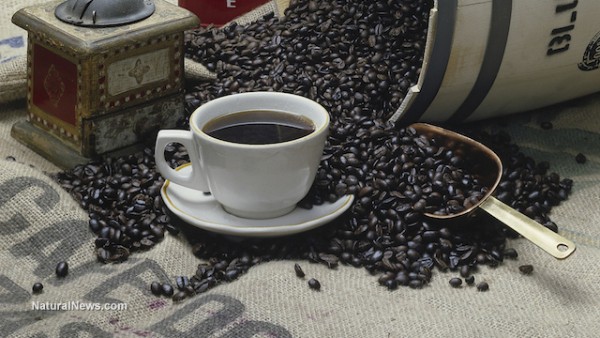
Advertisement
In today’s toxic world it’s best to have at your disposal a number of ways in which you can filter your food and especially your water. There is the conventional way – with a filter designed specifically for that purpose – and there are unconventional ways that you can use daily or on the fly.
Count used coffee grounds as a one of the latter, organic and otherwise.
As reported by Popular Science, millions of us love the smell of coffee in the morning and can’t wait to get to that first cup. But just about everyone tosses the used grounds after making the day’s serving. When you add restaurants, coffee shops and scores of offices around the world into the mix, you can begin to appreciate just how many millions of tons of grounds are discarded each day.
Scientists have now discovered how to reduce this waste while also removing toxic chemicals from the environment at the same time.
Researchers found a way to mold coffee grounds in the form of a super spongey filter that absorbs heavy metals found in most water supplies. The initial design and testing are described in the journal of the American Chemical Society, Sustainable Chemistry and Engineering.
“This product can help reduce the waste we generate,” said Despina Fragouli, lead scientist in charge of the project and a materials expert at the Istituto Italiano di Tecnologia [Italian Institute of Technology].
Indeed, the solution is also very practical and convenient. In the past people have recycled coffee grounds as organic fertilizer for their gardens, in animal feed and even as an ingredient in making biodiesel fuel, but until now there has not been a very efficient way to use it for water remediation.
Chemicals in coffee, like cellulose, fatty acids and polyphenols bind to heavy metals in much the same way that activated charcoal (used in overdoses) does, but the powder had to be removed somehow from the water after the fact.
Fragouli and her team wanted to simplify the process, so they added sugar and silicone to the coffee, allowing researchers to make a foamy brick that remained bound on its own and was simple to use as a filter. After submerging the brick in water the sugar leaches out and leaves the coffee grounds free to bind to metal ions in water.
The research team is now working on making improvements to the composition of the coffee-silicone combo so eventually it can serve as the only water filter you’ll ever need.
“It’s very important that we find new resources to make polymers – materials that are reusable and that can replace petroleum-based materials we currently use,” said Fragouli, as Popular Science reported.
Sources:
Submit a correction >>
This article may contain statements that reflect the opinion of the author
Advertisement
Advertisements















